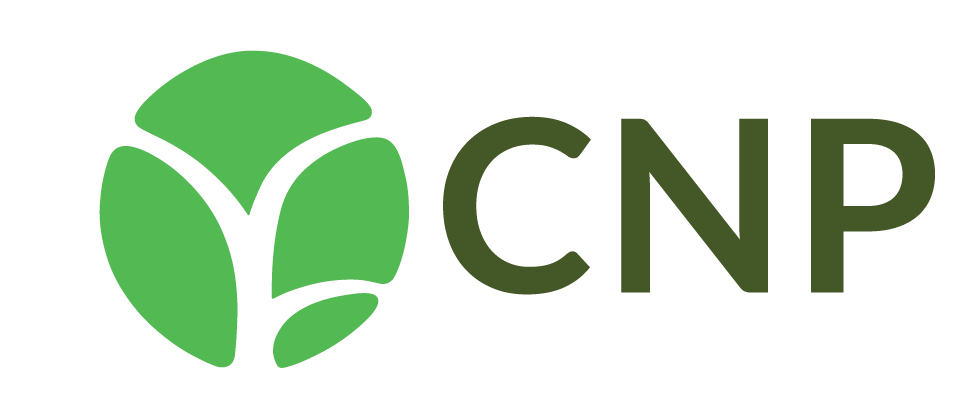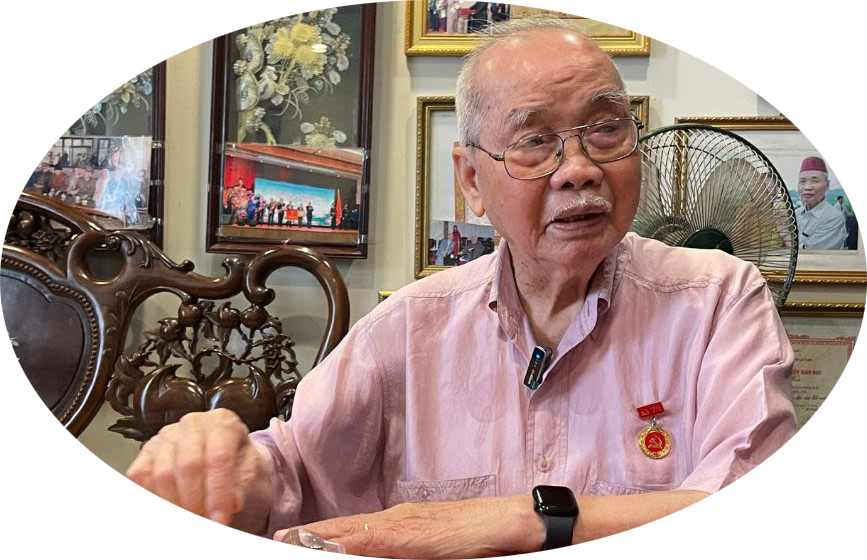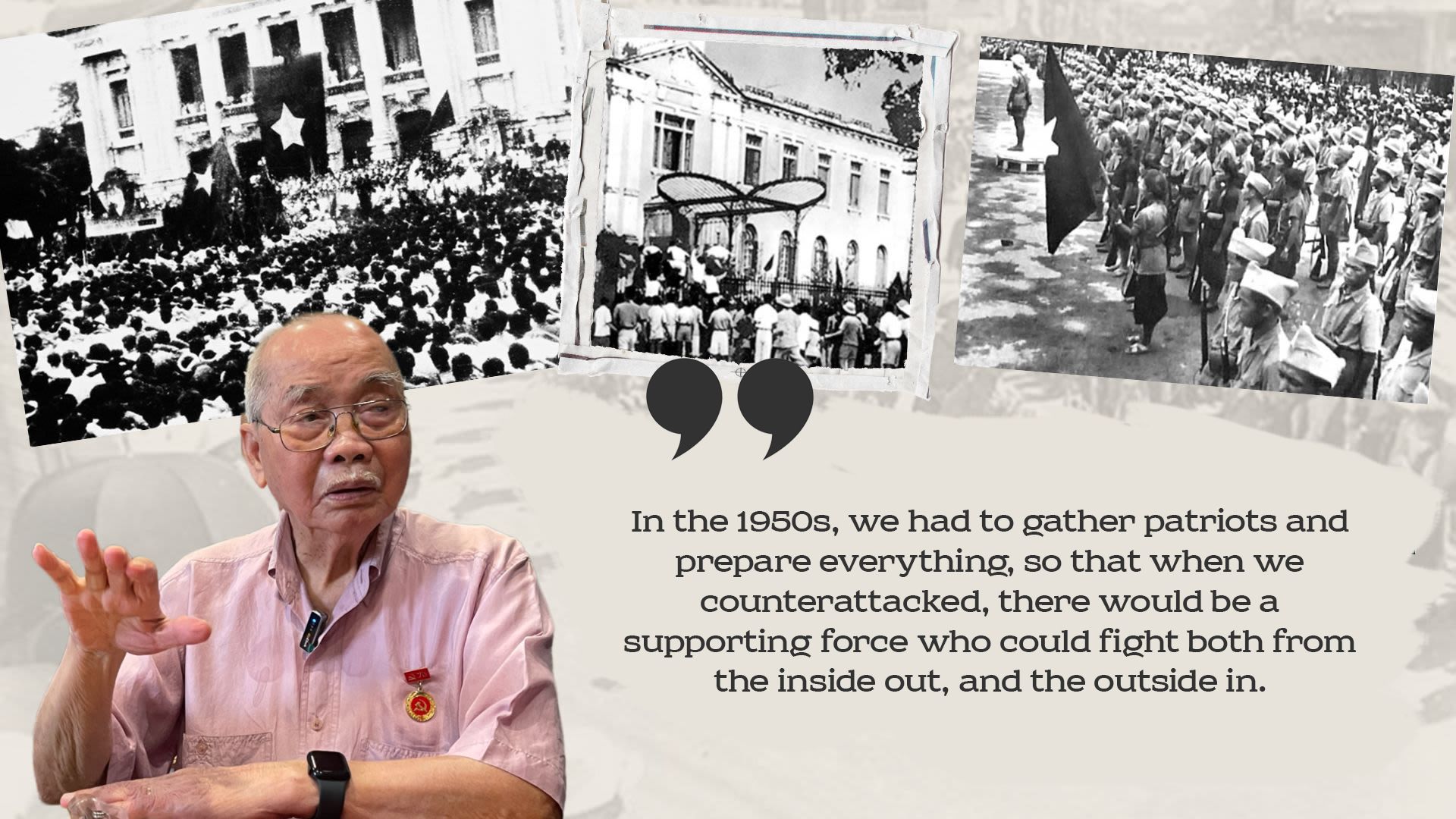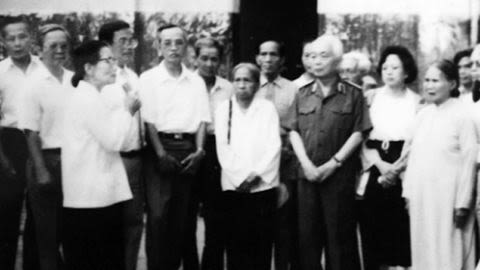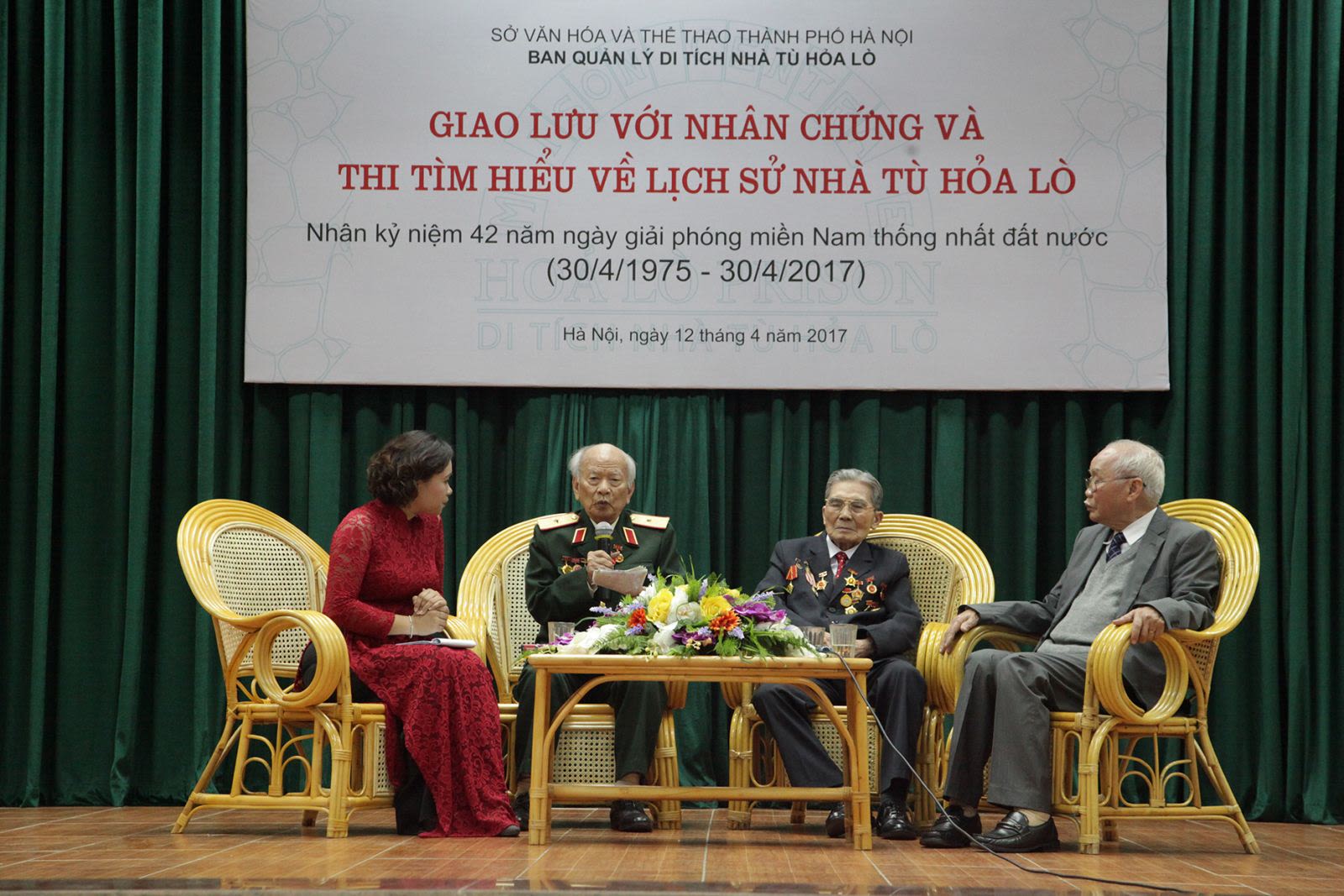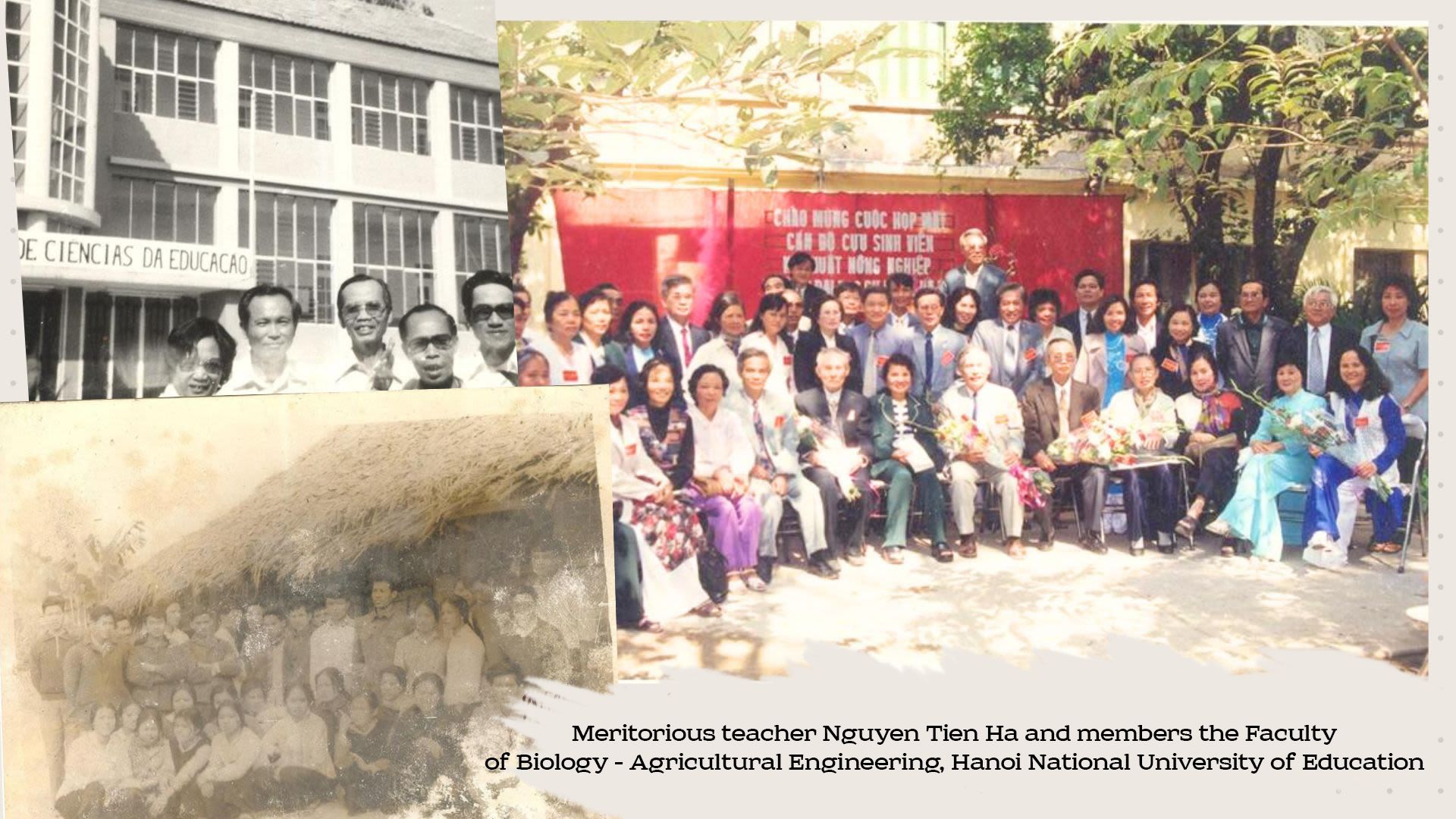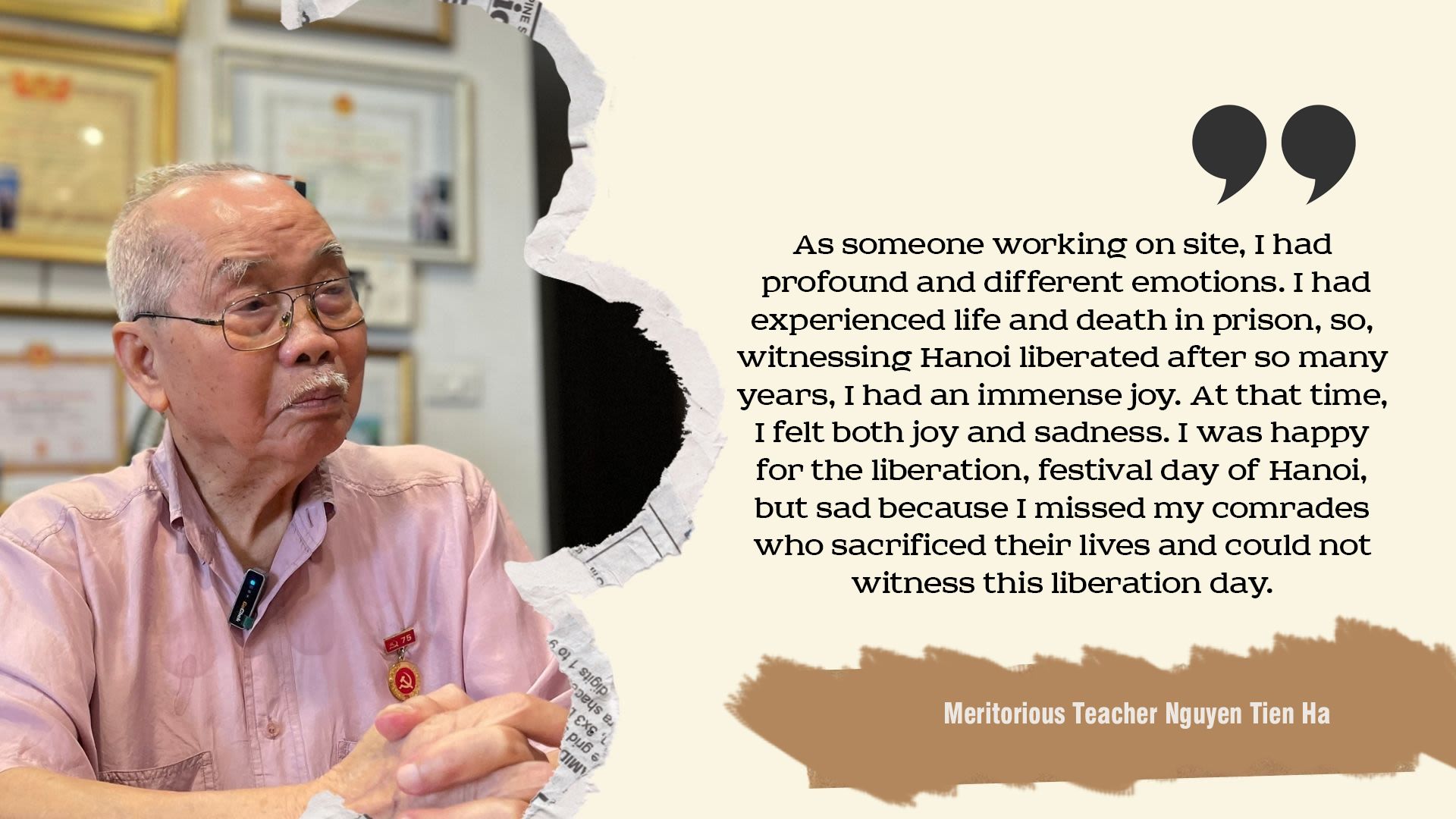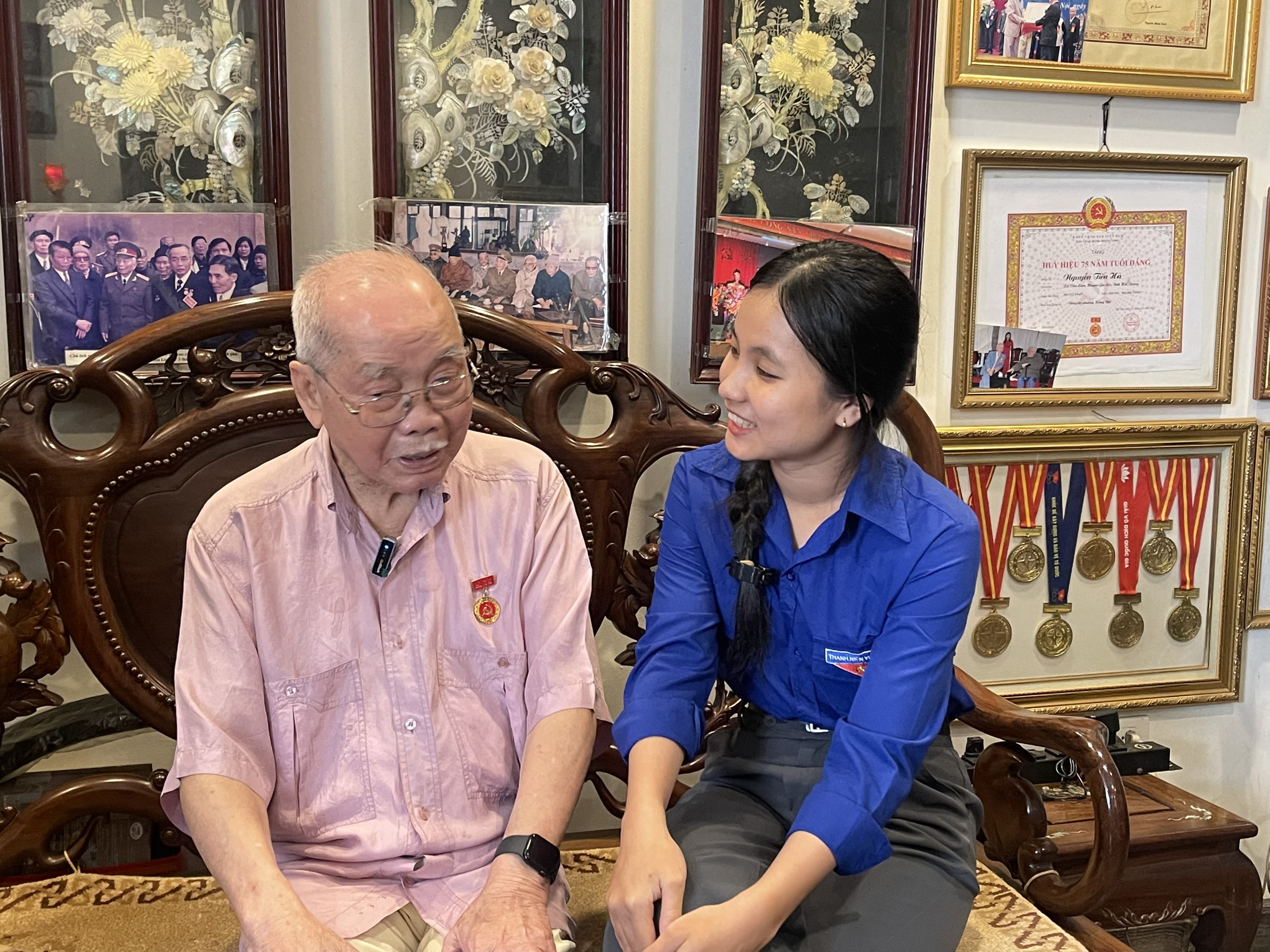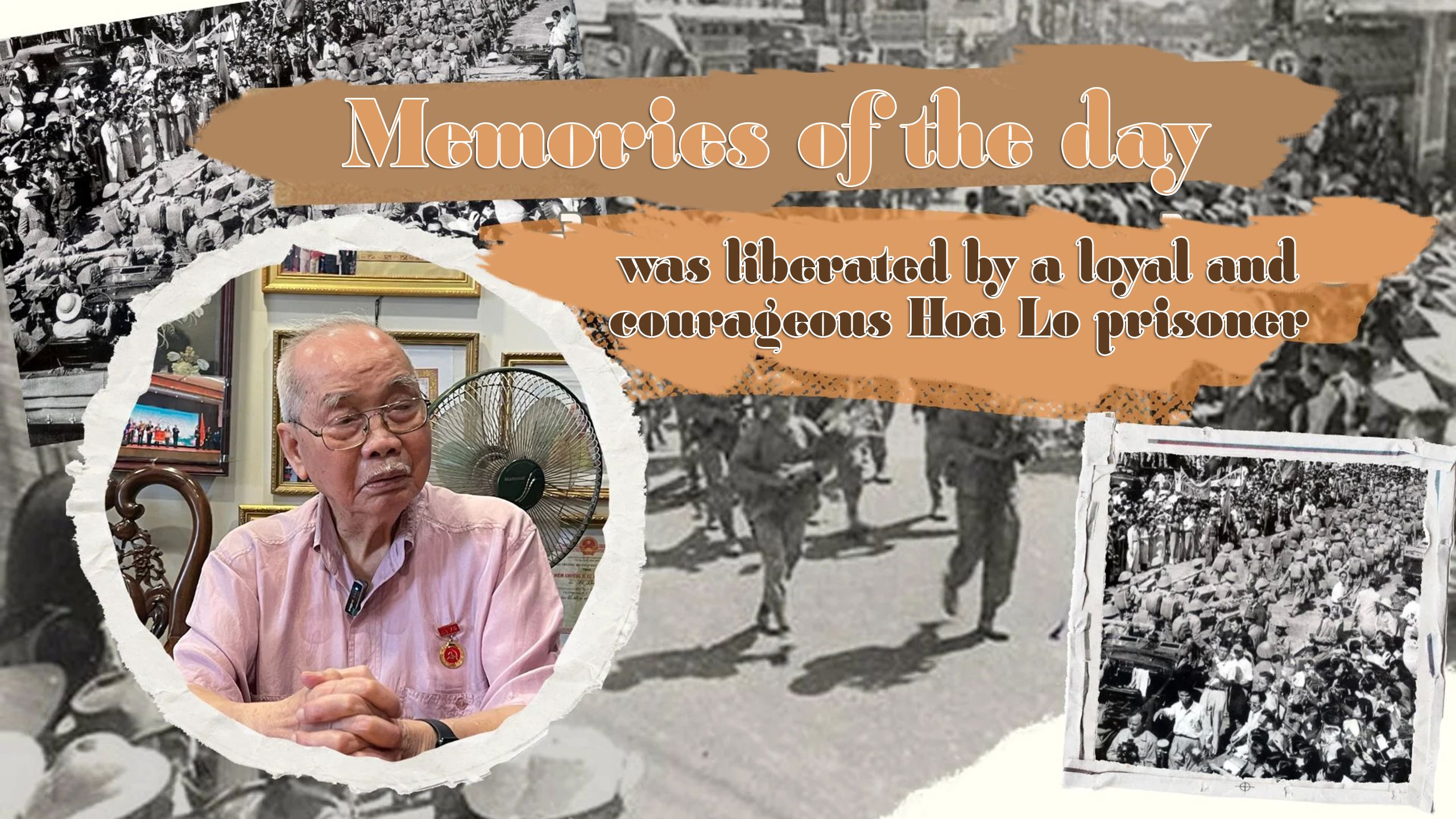
70 years have passed, but the memories of a time living under the cover of Professor Tran Huu Thoa, propagandising, teaching the national language, and working as a journalist... secretly operating in the temporarily occupied area of the capital have not faded in the mind of Nguyen Tien Ha a Hero of the People's Armed Forces born in 1928.
Perfect cover as a professor, secretly operating in the temporarily occupied area
The O Cau Den rampart during the resistance war against the French colonialists was the decisive battle point of the army and people of Inter-zone II, located on the continuous defensive line of 3 gates: Dong Mac-Cau Den-Dong Lam in the southeast of Hanoi. During the outbreak of the national resistance war, young man Nguyen Tien Ha volunteered to join the Vietnam People's Army, participating in the Hanoi military front (the predecessor of the current Capital Military Region), and fought bravely with his comrades for 60 days and nights to protect the capital at the O Cau Den front.
After 21 days and nights of fierce attacks, the entire defensive line of our city gates still stood firm. On January 15, 1947, the enemy accepted defeat and had to change direction of attack, hoping to continue to carry out the plan that the fierce bombs and bullets had failed to achieve at the city gates. The army was ordered to withdraw to the free zones in the areas of Quoc Oai, Son Tay, Chuong My, My Duc, etc., to preserve forces for the long-term resistance war.
In 1946-1949, Vietnam advocated sending forces into secret combat in the inner city to build bases. The superiors set the criteria for selecting cadres to work in the inner city: they must be from Hanoi, have passed the test of hardship and are trustworthy. The young man Nguyen Tien Ha was entrusted with this task, secretly entering the inner city, in charge of Truc Bach area (equivalent to the districts of Cau Giay and Ba Dinh now).
Nguyen Tien Ha, whose birthname is Nguyen Huu Tu, was born in Van Lam Commune, Gia Loc District, Hai Duong Province. He is the younger brother of Nguyen Huu Van, who used to be a bodyguard and secretary of President Ho Chi Minh under the name Ta Quang Chien — one of the eight people named by Uncle Ho in the statement: “Truong, Ky, Khang, Chien, Nhat, Dinh, Thang, Loi”, the eight names when standing together form the slogan “The resistance will certainly win.”
Ha was assigned the task of popularising the “long-term resistance, certain victory” policy to enlighten the people about the resistance guideline. “In the 1950s, we had to gather patriots and prepare everything, so that when we counterattacked, there would be a supporting force who could fight both from the inside out, and the outside in.” Ha raised his fists in the air, recalling the determination of his youthful enthusiasm.
Working in the enemy's heartland, he and his teammates achieved a number of feats such as destroying the power transmission station (transformer station) of Hanoi, causing a power outage in the Hanoi area; mobilised people to break down the gate to welcome Bao Dai; encouraged people in breweries, water plants, and power plants to preserve the facilities and protect secret soldiers; mobilised students to join the resistance; and gathering support from traders in the Dong Xuan and Bac Qua markets.
In addition, Ha also mobilised doctors and nurses in hospitals to provide our forces with medicine. Through Don Thuy Hospital, our forces also knew the number of wounded enemy troops. Another important task was that this secret force also sold resistance bonds to earn money to buy weapons and medicine to send to the liberated areas.
At that time, Ha operated under the cover of Professor Tran Huu Thoa.
At that time, Mr. Ha operated under the cover of a professor named Tran Huu Thoa, teaching Mathematics, Physics, and Chemistry in French, and tutoring children of resistance soldiers. Under this cover, one of the long-term and essential tasks that Ha was assigned was to open small classes of less than 10 people to explain about the revolutionary cause.
In 1949, Nguyen Tien Ha was an officer of the Hanoi High Command, assigned to participate in commanding the rescue of a Hanoi police envoy, comrade Le Nghia (alias Nghia Lo), who was being treated at Phu Doan Hospital (now Viet Duc Hospital).
After directly investigating and researching the terrain of the medical facility and studying the changing-of-the-guard of the enemy's police, he made a plan of action. The plan was prepared down to the last detail, with a spy being a medical staff member.
The plan was perfect. Nghia was carried out to Quan Su Street, Hoi Vu Alley, and handed over to the police. The Viet Minh force's daring prison robbery in broad daylight caused a great stir.
Unfortunately, later, a member of the team told the story of the prison robbery to the police. The entire team was arrested. They found out that the leader of the prison robbery was a man named Tran Huu Thoa. Thoa (aka Ha) was caught by them right at Hang Non Street, when he had just received documents sent from the free zone. They took him to the District Police and tortured him repeatedly. They used many tricks in their attempt to force this 22-year-old young man to reveal his organisation.
When they could not get any information, they took him back to the Hanoi Secret Service (now the Hanoi Police headquarters). The blows were continuously inflicted on the young soldier, from tying his feet and hanging him from a beam, repeatedly electrocuting him, to the pushing his head into water. Pain and numbness spread throughout his body, but Ha refused to reveal anything. "I promised the Party and the people, as if I revealed anything, it would be dangerous for the organisation and harmful to the people," Ha said thoughtfully.
He added: "Being brutally tortured, I was determined to escape from prison."
Brothers Nguyen Tien Ha (aka Nguyen Huu Tu) and Ta Quang Chien (aka Nguyen Huu Van).
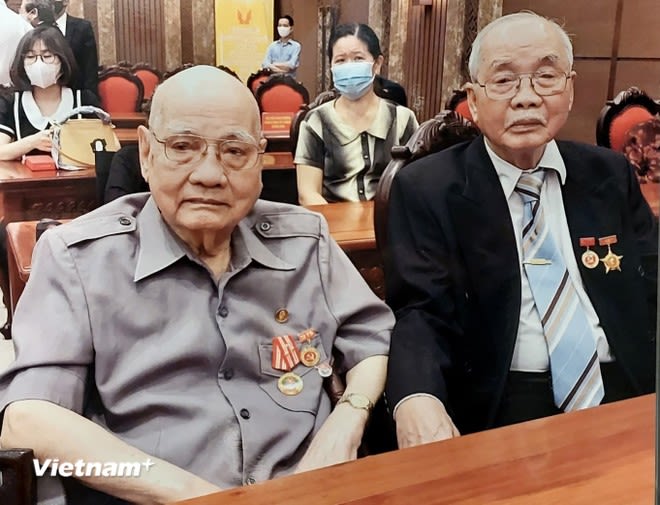
In front of the Hoa Lo Prison relic site – 1994
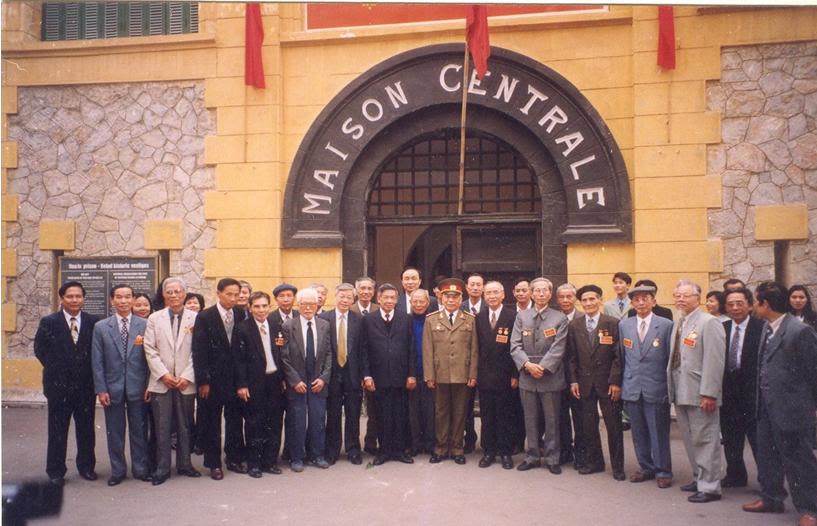
The days of making newspapers in Hoa Lo Prison
After brutal torture, seeing Ha’s emaciated body, the French soldiers carried him to the Hoa Lo medical station. Thanks to the care of the medical staff and fellow inmates, he gradually regained his strength. Once again, Ha was taken to the Secret Service for questioning. Now they switched to the psychological weapon to entice him. Ha recalled “They gave me tobacco and milk, enticing me to reveal just one base so that I could go back home, but I absolutely did not say anything. If I revealed about the jailbreak, I would be sentenced to death. Finally, they could only charge me with undermining security and order in the city and took me to Hoa Lo Prison, waiting for trial.” He was later sentenced to 18 months in prison.
General Vo Nguyen Giap, his daughter Vo Hong Anh, and revolutionary soldiers who were imprisoned by the enemy at Hoa Lo Prison (Nguyen Tien Ha wearing glasses, standing in the middle).
General Vo Nguyen Giap, his daughter Vo Hong Anh, and revolutionary soldiers who were imprisoned by the enemy at Hoa Lo Prison (Nguyen Tien Ha wearing glasses, standing in the middle).
During his time in Hoa Lo Prison, when his health gradually recovered, his will to fight the enemy made him more active than before. His resilience and courage made his comrades in prison admire him, and he was elected Secretary of the Hoa Lo Prison Party Cell.
“The directive of the Hanoi Party Committee is to turn the prison into a revolutionary school, a new front to fight against the enemy. To liberate the nation and to make a revolution, first of all, you must have knowledge and education,” Ha said, then spoke about the time he organised classes in prison.
The directive of the Hanoi Party Committee is to turn the prison into a revolutionary school, a new front to fight against the enemy. To liberate the nation and to make a revolution, first of all, you must have knowledge and education.
Despite the strict supervision, he used every moment in Hoa Lo to secretly teach literacy, basic math, and brief lessons on history to his comrades. He taught whatever he could based on each person’s abilities. Ha also taught Vietnamese, English, and French, while comrades from the Fatherland Front Committee taught political theory. The goal was to raise the education level of illiterate people so that after being released from prison, they could continue serving the government and the people.
“This teaching effort also helps boost morale, broaden their knowledge, and maintain the fighting spirit in prison, preventing negativity,” Ha said.
Nguyen Tien Ha (far right) in an exchange with the young generation of Hanoi.
Nguyen Tien Ha (far right) in an exchange with the young generation of Hanoi.
Seizing every opportunity, Ha and some comrades also produced internal newsletters and relayed reports from the District Party Committee to summarise information for the prisoners. These reports were then disseminated within various prisons.
“Writing the newsletters is very challenging. We need supplies from outside, such as thin parchment paper, carbon paper, and pens. These items are secretly sent in by comrades placed in positions at the prison office. They are hidden inside food boxes and delivered to specific recipients,” Ha recalled.
As for the news sources, information was transmitted through sticky rice and snack wrapping paper. But after three months, the enemy discovered this method, so the information had to be hidden inside medicine bottles to be smuggled into the prison.
The process of producing the prison newsletter held many unforgettable memories. Under the dim light of an oil lamp, Ha and his fellow inmates would crawl on the floor, writing with pencils on thin parchment paper, then “photocopying” the newsletters using carbon paper.While writing and staying vigilant, they could only produce about ten copies of the newspaper each night. During communal times at the bath, the small newspapers, only two fingers in size, were secretly and hastily exchanged.
In Hoa Lo Prison, Ha and his comrades maintained a hidden flow of information about the resistance, ensuring that the soldiers inside the prison were not cut off from news about the nation's revolution.
In December 1952, Ha was released. He continued to operate semi-publicly in Hanoi until the Geneva Agreement was signed, after which he was tasked with joining the troupe to take over the capital. Ha could speak French, so he was assigned to manage the Camp for Euro-African prisoners of war, explaining to them the humanitarian policies of the Vietnamese government.
On October 8, some of our military units were stationed in the first defensive ring around the city, led by the Regiment Commander - Army Hero Nguyen Quoc Tri. The delegation departed from Quan Ngua area (now Quan Ngua Sports Complex) passing through Kim Ma, Nguyen Thai Hoc, Cua Nam, Hang Bong, Hang Dao, Hang Ngang streets before entering the Citadel from Cua Dong.
The 88th and 36th regiments departed from the Vietnam campus area (now the Hanoi University of Science and Technology area), passing through Bach Mai street, Hue street, Hang Bai street, around Hoan Kiem lake, then following two directions of Tran Hung Dao street to station in the areas of Don Thuy (now Central Military Hospital 108, Friendship Hospital) and Dau Xao (Friendship Cultural Palace).
The mechanised and artillery group was led by Chairman of the Military Commission Vuong Thua Vu and Vice Chairman Tran Duy Hung, marched from Bach Mai airport, went to Vong intersection, to Trung Hien intersection, along Bach Mai street, Hue street, Hang Bai street, Hang Dao street, Hang Ngang street, through Dong Xuan market, up to Hang Giay, Hang Dau flower garden before entering the Hanoi Citadel through the Cua Bac.
"As someone working on site, I had profound and different emotions. I had experienced life and death in prison, so, witnessing Hanoi liberated after so many years, I had an immense joy. At that time, I felt both joy and sadness. I was happy for the liberation, festival day of Hanoi, but sad because I missed my comrades who sacrificed their lives and could not witness this liberation day," Ha added.
The memories of 70 years ago caused Ha’s shoulders to occasionally tremble, as he wiped away tears with a handkerchief. After the liberation, he worked in the education sector and became a senior expert. He was awarded the title of Meritorious Teacher by the State. Currently, he serves as the Head of the Liaison Committee for Revolutionary Soldiers Imprisoned by the Enemy at Hoa Lo Prison.
During the historic days of October, many young people have come to meet him to hear his stories. Although his legs have grown weak and his eyesight has faded, he is always willing to welcome the youth to passionately recount a glorious period in the nation's history and speak of the steadfast and brave revolutionary soldiers who endured torture at the hands of the enemy. Throughout the conversation, he has not referred to himself as a journalist or a writer but simply as a humble teacher who has contributed a small part of his strength to the long struggle for the nation’s revolution.
Production managers: NAM DONG – HUU VIET
Content: THAO LE – THIEN LAM
Translation: NDO
Design: HANH VU
Photos: VNA, HOA LO PRISON
